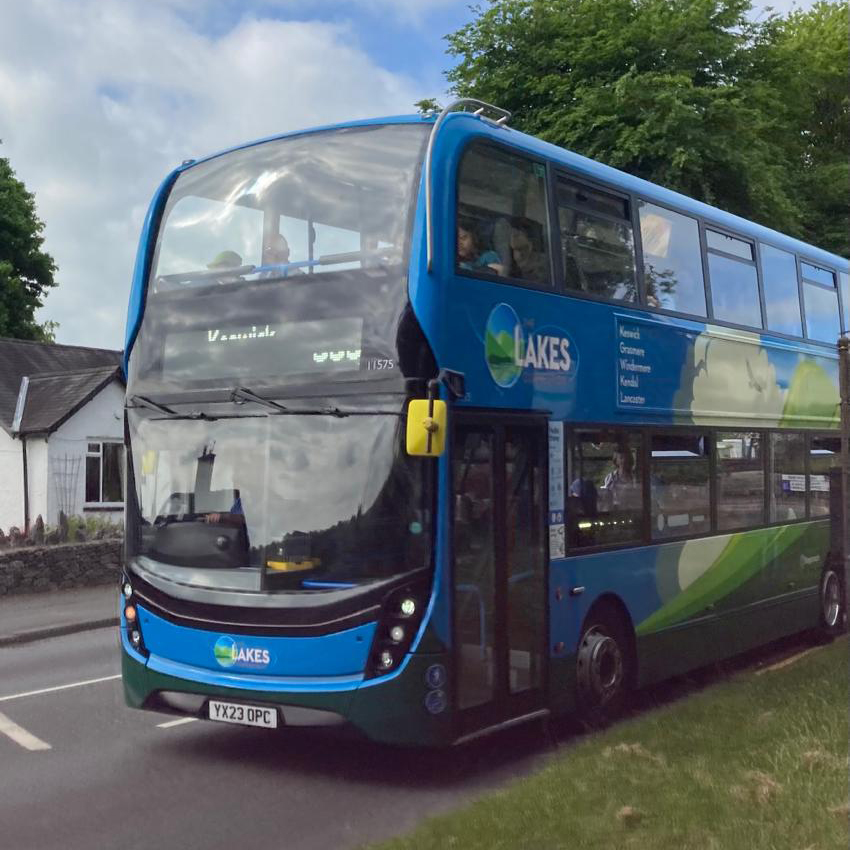
It’s time to make some bold decisions to deliver better transport for National Parks

The last week has been a fantastic celebration of the opportunities for getting around by public transport, but the sad truth is that many people are excluded from visiting our National Parks because of the lack of transport options for those without a car. National Parks should be available for everyone to visit and to benefit from the contribution to health, well-being and spiritual inspiration these special places provide.
The limited alternatives also mean that those visitors that do have a choice usually arrive by car – around 93% on average. This high level of car use is putting at risk precious landscapes and wildlife and is also responsible for a significant proportion of the carbon emissions associated with visits to National Parks. At a time of climate and nature emergency and an increasing recognition of the health benefits of access to nature, this situation cannot continue.
Despite the significant cuts to rural bus services in recent years, there are several excellent examples of successful routes serving National Parks. Some of these are managed and supported by local voluntary groups, for example the DalesBus network of routes providing links between the Yorkshire Dales and local towns and cities and the MoorsBus services in the North York Moors. There are also a number of visitor transport services provided by National Park Authorities (NPAs) working in partnership with bus companies and other organisations. Examples include the seasonal, open-top New Forest Tour routes and the Breeze up to the Downs network which links Brighton with the South Downs on weekends and public holidays. This summer many of these services are far more affordable than they would have been previously too thanks to the continuation of the £2 bus fare scheme.
Where time and effort has been put into providing bus services, it is clear that there is a huge demand for them. Over 400,000 passenger journeys have been made on DalesBus services since 2007 but despite this success, many of their Sunday services – the ones likely to be of most value for visitors – are dependent on voluntary donations. Over the last few years the Dales and Bowland Community Interest Company which runs DalesBus have had to develop an innovative approach to keeping these services running which has included crowd funding and sponsorship. It is inspiring to see what they’ve achieved but such an approach relies heavily on the commitment of volunteers, something which is unlikely to be sustainable in the long-term.
There is an urgent need for stable long-term funding for these types of bus services. There are also some places in National Parks where the problems of parking and congestion are causing significant damage to the environment and then, of course, there is the issue of the high levels of carbon emissions associated with visitor travel. All this points clearly towards the need to adopt a different approach. The time is now right to test out road pricing as a way of limiting car use in certain locations in National Parks and raising much needed revenue to support sustainable transport.
The evidence in support of such an approach is growing all the time. Just last month a report from the Centre for Research into Energy Demand Solutions highlighted the need to place far more emphasis on using demand management to reduce traffic growth and emphasised that if the UK Government is to have any hope of meeting its net zero targets the current reliance on technological solutions cannot continue. Then this month comes a report by Green Alliance demonstrating the need to reform transport taxation to make it fairer and better able to support a low carbon economy and calling for the introduction of a package of reforms, including road pricing.
Change of this kind isn’t going to be easy to introduce. It will require the Government to have “an honest conversation with the public” as the Transport Select Committee has already recommended. But such measures are likely to be more acceptable to visitors to National Parks if presented as a way of demonstrating their willingness to protect these special areas and if the money raised is used to help fund alternatives to the car. That’s why our response to the Government’s consultation on the Glover Review last year called for new powers on transport to make it easier for the NPAs to introduce road pricing, or other transport demand management measures such as selective road closures. A year on there’s even more evidence to demonstrate the need for such a change and we’ll be continuing to call for this as part of our manifesto asks for the next Westminster General Election.
